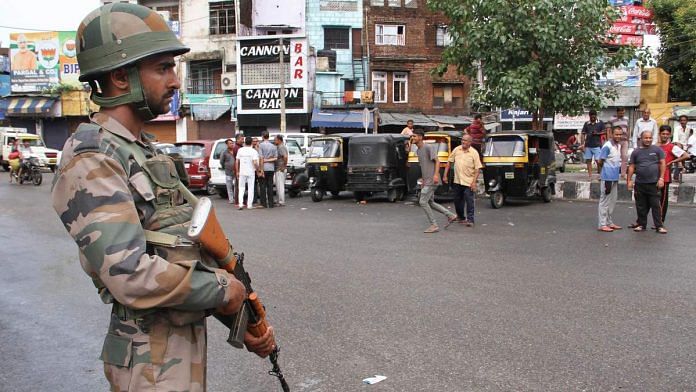New Delhi: The Modi government’s decision to strip Jammu & Kashmir of its special status through a presidential order issued under Article 370 has sparked a debate about the future of other states that enjoy exclusive privileges under the Constitution.
From Nagaland, Mizoram, Assam, Meghalaya, Manipur, Sikkim and Arunachal Pradesh in the northeast, to Karnataka and Andhra Pradesh in the south, and Goa and Maharashtra to India’s west, several states enjoy special rights in deference to local beliefs and traditions.
However, they are quite different from Article 370, which means the concerns about their revocation in a similar manner as Article 370 could be misplaced.
Also read: BJP & Congress defend Himachal land law, says no comparison with provisions for J&K
Article 370 and peers
Article 370 provides special status to J&K, laying down different laws of citizenship as well as property rights for residents. It also allows the state to have its own constitution, its own flag as well as a degree of autonomy.
The provision specifies that the Indian Parliament needs the state legislature’s concurrence for applying any law to the state, except those concerning defence, foreign affairs, communications and ancillary matters.
Article 370 has been in the Constitution since it became operational on 26 January 1950, as has Article 371, which consists of special provisions for Maharashtra and Gujarat.
Since then, Articles 371A to 371I have been added via constitutional amendments to grant privileges to states with certain conditions or communities that are deemed to warrant special attention.
Article 371A allows Nagaland to have administrative and legal mechanisms based on Naga customary laws, and the right to carry on local religious and social practices.
It shields the state from parliamentary laws on ownership and transfer of land and resources, stating that they can only be enforced if the legislative assembly agrees to them.
Article 371G has a similar provision for Mizoram.
The other constitutional provisions range from allowing the President to constitute a committee of tribal MLAs in Assam and Manipur to represent the communities, to specifying the minimum number of members in the Goa assembly (30).
Also read: China says India’s Kashmir move ‘unacceptable’, undermines its territorial sovereignty
Narrower in scope
Simply put, none of the articles from 370(B) to 370(I) is remotely as wide in scope as Article 370.
Article 370 sprang from certain conditions listed by the erstwhile J&K ruler Hari Singh in the Instrument of Accession, which made the state a part of India.
This instrument specifically stated, “Nothing in this Instrument shall be deemed to commit me in any way to acceptance of any future constitution of India or to fetter my discretion to enter into arrangements with the Government of India under any such future constitution.”
The White Paper on Indian States (1950), prepared by the then Ministry of States, noted that the Instrument of Accession signed by Maharaja Hari Singh is the same as that signed by other princely states that acceded to India.
However, it also spelt out the reason why the article was added, “in view of the special problems arising in respect of this state and the fact that the Government of India have assured its people that they would themselves finally determine their political future”.
Article 370 is a “temporary provision”, and places the onus on the state’s constituent assembly to recommend it to the President to declare the provision inoperative.
Notably, none of these articles allows the President to alter the “status” of the state through a presidential order, with or without the consent of the assembly. No other article allows the complete provision to be declared inoperative through a presidential order.
Also read: What Nehru wrote to Sardar Patel on Kashmir & its ‘oblivious’ Hindu Maharaja



